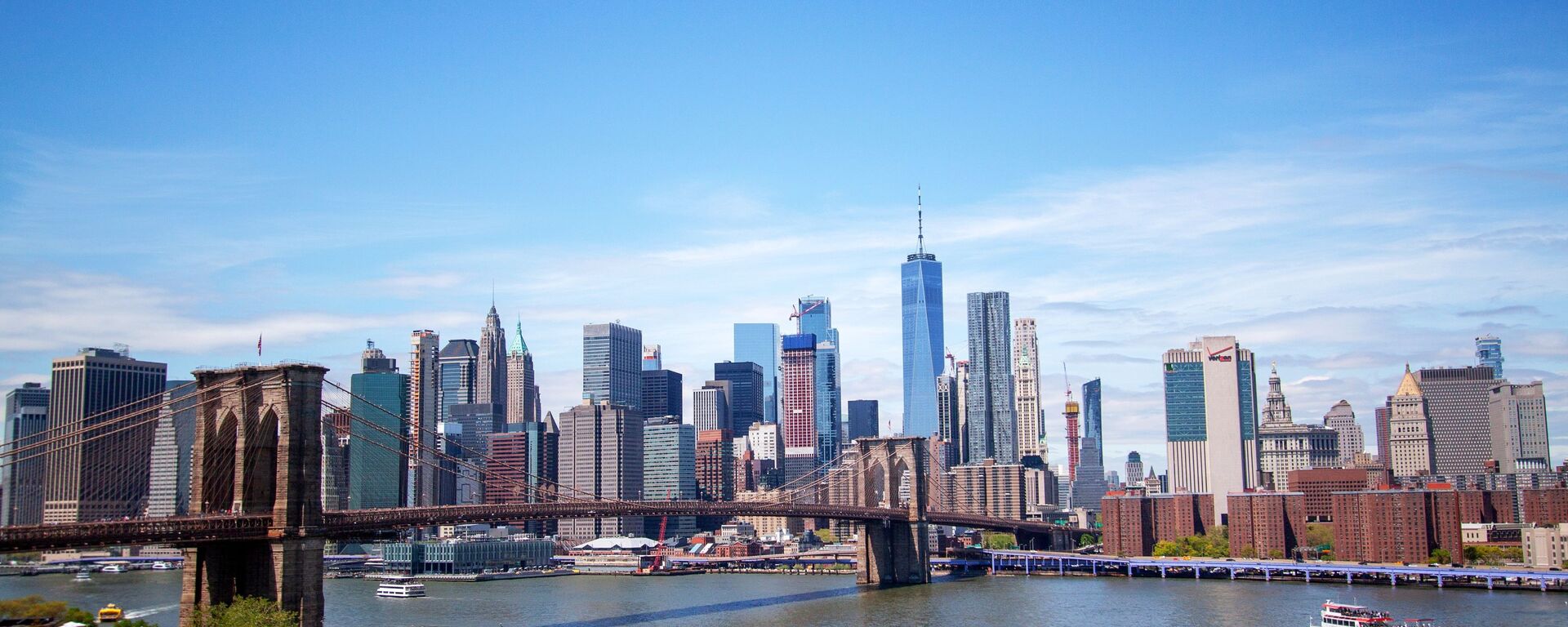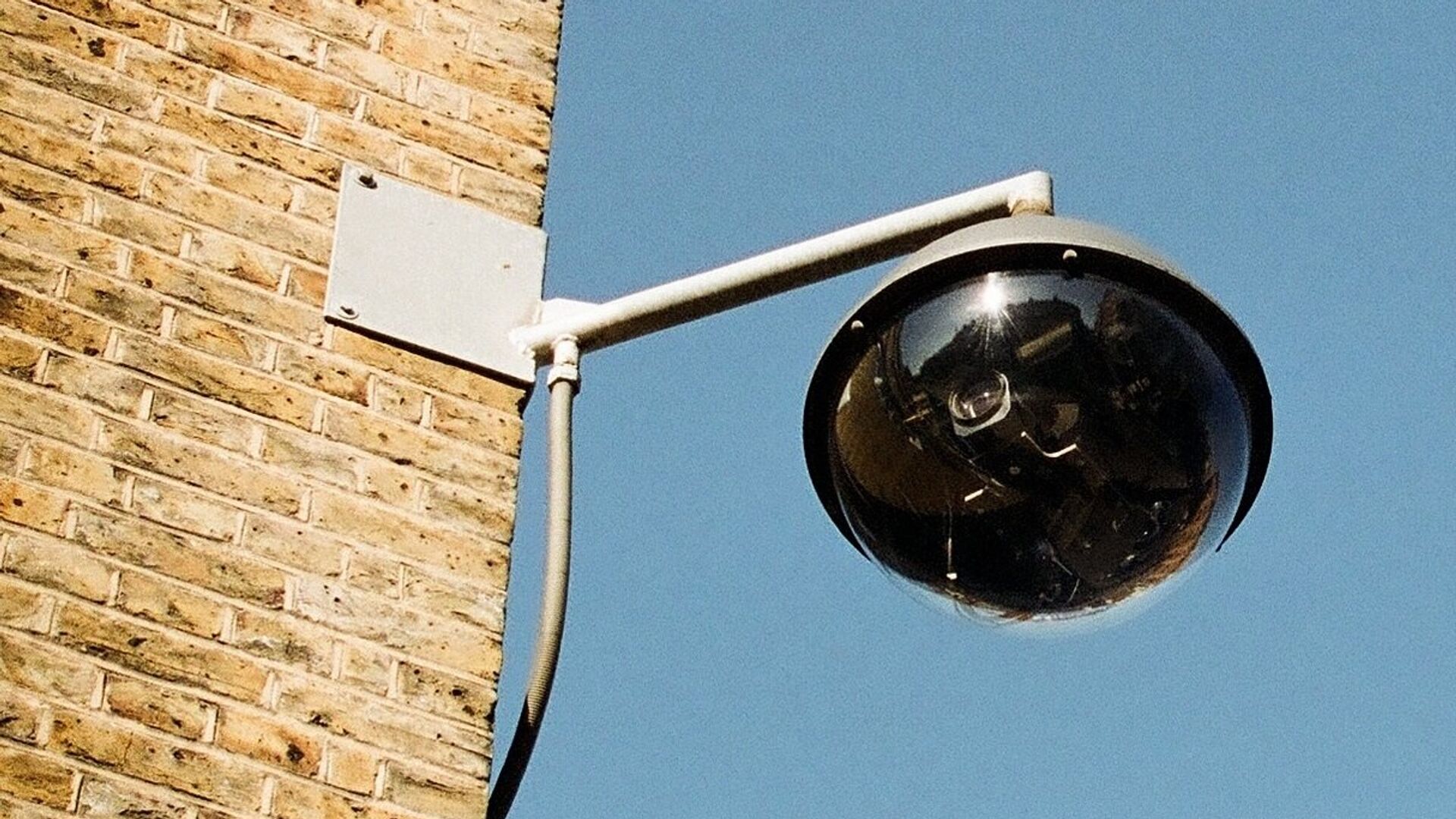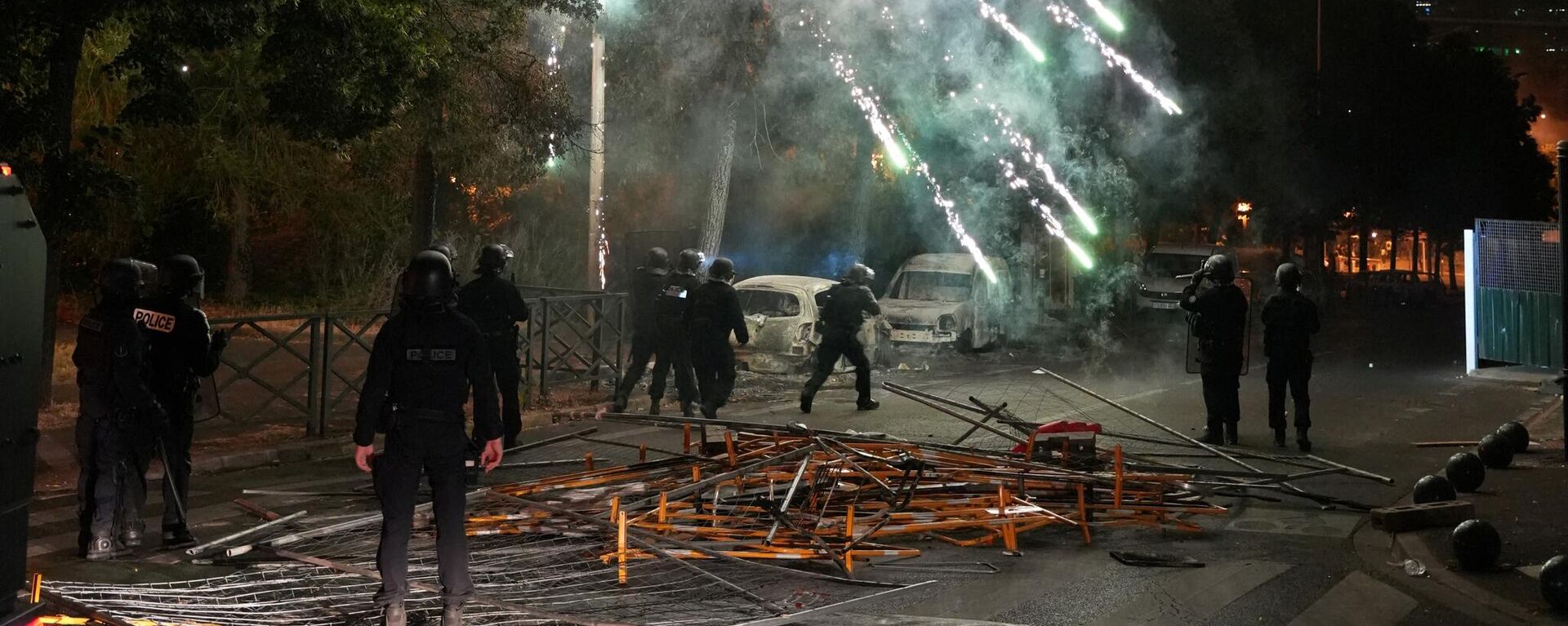https://sputnikglobe.com/20230719/frances-plan-to-use-ai-cameras-at-2024-paris-olympics-enables-mass-control--1111982387.html
France’s Plan to Use AI Cameras at 2024 Paris Olympics ‘Enables Mass Control’
France’s Plan to Use AI Cameras at 2024 Paris Olympics ‘Enables Mass Control’
Sputnik International
French authorities earlier said that police using real¬-time cameras with AI would be part of the government’s efforts to ensure security at next year’s Olympic Games, which may be attended by hundreds of thousands of spectators.
2023-07-19T07:42+0000
2023-07-19T07:42+0000
2023-07-19T07:42+0000
world
france
olympic games
government
surveillance
security
police
use
https://cdn1.img.sputnikglobe.com/img/101874/20/1018742078_0:50:1214:733_1920x0_80_0_0_550a0bfc3158eda02ca9a5bfa55be2e0.jpg
Rights groups have slammed the French government’s plan for AI video surveillance at the 2024 Paris Summer Olympics as a threat to civil freedom.Activists are unhappy about the plan despite the government’s assurances that its security proposals for the Paris Olympics do not include the use of facial recognition technology, and that real-time cameras using AI were an experimental measure for a defined period.The rights organizations, however, are concerned that the government's real goal is to make the new security provisions permanent.Noemie Levain, of the digital rights campaign group La Quadrature du Net (Squaring the Web), told a UK broadcaster that they “have this before at previous Olympic Games like in Japan, Brazil and Greece.”She described AI video monitoring as “a surveillance tool which allows the state to analyses our bodies, our behavior, and decide whether it is normal or suspicious.” According to her, even without facial recognition, the AI video surveillance “enables mass control.”This came after groups including Amnesty International, Human Rights Watch and Big Brother Watch pointed out in an open letter that the government’s plan for AI video surveillance at the 2024 Olympic Games constituted “a serious threat to civic freedoms and democratic principles.”The court’s move was preceded by ministers insisting that a spate of exceptional security measures are needed to ensure the smooth running of the 2014 Games that are expected to attract about 13 million spectators.Katia Roux, the advocacy officer on technology and human rights at Amnesty International France, earlier said that they were “deeply worried by the fact that these [AI] algorithms will be able to analyze images from fixed CCTV cameras or drones to detect ‘abnormal or suspect’ behavior” at the 2024 Games.Roux said that although the government pledged that no biometric data would be used, “in reality the algorithms will analyze behavior, and physical data, which is data that must be protected.” She underscored that the efficiency of such automatic surveillance techniques had yet to be proved.Amnesty’s advocacy officer also warned that the Paris Games “must not serve as a pretext” to allow exceptional measures to become permanent law.Rights groups’ criticism comes after French President Emmanuel Macron was accused of authoritarianism earlier this month after he said that the government might shut down social networks as a means to tackle mass riots over police killing a teenager. On June 27, 17-year-old Nahel M was shot dead by a police officer for failing to stop his car when ordered to do so in Nanterre, a suburb of Paris. On July 4, Macron said that the peak of the riots had passed, and that that the priority was to establish "a lasting order."
https://sputnikglobe.com/20220215/amnesty-international-urges-new-york-city-to-ban-facial-recognition-technologies-1093060994.html
https://sputnikglobe.com/20230713/riots-in-france-caused-by-lack-of-respect-for-authority-rather-than-migrants---police-chief-1111859264.html
france
Sputnik International
feedback@sputniknews.com
+74956456601
MIA „Rossiya Segodnya“
2023
Sputnik International
feedback@sputniknews.com
+74956456601
MIA „Rossiya Segodnya“
News
en_EN
Sputnik International
feedback@sputniknews.com
+74956456601
MIA „Rossiya Segodnya“
Sputnik International
feedback@sputniknews.com
+74956456601
MIA „Rossiya Segodnya“
2024 paris olympic games, french government, real-time cameras with ai, french government's plan to use surveillance cameras with ai at 2024 paris olympics
2024 paris olympic games, french government, real-time cameras with ai, french government's plan to use surveillance cameras with ai at 2024 paris olympics
France’s Plan to Use AI Cameras at 2024 Paris Olympics ‘Enables Mass Control’
French authorities earlier said that police using real-time cameras with AI would be part of the government’s efforts to ensure security at next year’s Olympic Games, which may be attended by hundreds of thousands of spectators.
Rights groups have slammed the French government’s plan for AI video surveillance at
the 2024 Paris Summer Olympics as a threat to civil freedom.
Activists are unhappy about the plan despite the government’s assurances that its security proposals for the Paris Olympics do not include the use of facial recognition technology, and that real-time cameras using AI were an experimental measure for a defined period.
The Paris Olympic Games are due to be held between July 26 and August 11, 2024, with the experimental period allowed by the plan-related law expected to expire in March 2025.
The rights organizations, however, are concerned that the government's real goal is to make the new security provisions permanent.

15 February 2022, 16:55 GMT
Noemie Levain, of the digital rights campaign group La Quadrature du Net (Squaring the Web), told a UK broadcaster that they “have this before at previous Olympic Games like in Japan, Brazil and Greece.”
“What were supposed to be special security arrangements for the special circumstances of the games, ended up being normalized," Levain added.
She described AI video monitoring as “a surveillance tool which allows the state to analyses our bodies, our behavior, and decide whether it is normal or suspicious.” According to her, even without facial recognition, the AI video surveillance “enables mass control.”
Levain warned that the measure could result in people “[…] losing the right to be anonymous, the right to act how we want to act in public, the right not to be watched."
This came after groups including Amnesty International,
Human Rights Watch and Big Brother Watch pointed out in an open letter that the government’s plan for AI video surveillance at the 2024 Olympic Games constituted “a serious threat to civic freedoms and democratic principles.”
The remarks followed France’s top constitutional court in mid-May sanctioning automated video camera surveillance, in which AI algorithms would be used by police to detect suspicious or “abnormal” activity in crowds during the upcoming Paris Olympics.
The court’s move was preceded by ministers insisting that a spate of exceptional security measures are needed to ensure the smooth running of the 2014 Games that are expected to attract about 13 million spectators.
Katia Roux, the advocacy officer on technology and human rights at Amnesty International France, earlier said that they were “deeply worried by the fact that these [AI] algorithms will be able to analyze images from fixed
CCTV cameras or drones to detect ‘abnormal or suspect’ behavior” at the 2024 Games.
“First, there is the issue of defining abnormal or suspect behavior – who will decide what behavior is the norm or not? Also, in terms of human rights and fundamental freedoms, we consider the proposal presents a danger to the right to a private life, it could also impact freedom of expression, freedom to meet, and the principle of non-discrimination,” she emphasized.
Roux said that although the government pledged that no biometric data would be used, “in reality the algorithms will analyze behavior, and physical data, which is data that must be protected.” She underscored that the efficiency of such automatic surveillance techniques had yet to be proved.
Amnesty’s advocacy officer also warned that the Paris Games “must not serve as a pretext” to allow exceptional measures to become permanent law.
Rights groups’ criticism comes after
French President Emmanuel Macron was accused of authoritarianism earlier this month after he said that the government might shut down social networks as a means to tackle mass riots over police killing a teenager.
On June 27,
17-year-old Nahel M was shot dead by a police officer for failing to stop his car when ordered to do so in Nanterre, a suburb of Paris. On July 4, Macron said that the peak of the riots had passed, and that that the priority was to establish "a lasting order."




